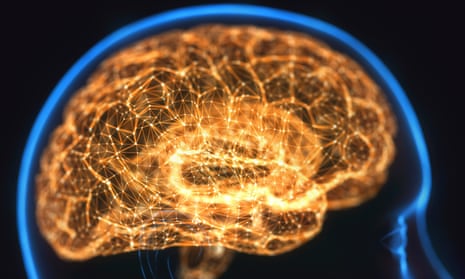Tens of thousands of Britons who suffer from “suicide headaches” face years of delay in getting diagnosed because GPs often mistake their symptoms for a migraine, new research reveals.
Cluster headache, the medical term for the condition, is as common as but much less well known than other neurological disorders such as multiple sclerosis or Parkinson’s disease. One in 1,000 people have it. It involves excruciating pain that can last for anything between 15 minutes and three hours. It is known as “suicide headache” because 64% of sufferers think about taking their own life.
A study published in the British Journal of General Practice paints a picture of patients forced to wait a long time to have their cluster headache correctly identified and begin treatment.
“It [the delay] used to be nine-plus years, although still it is around three to four years on average, but for some it may be 20-plus years,” said Dr Fayyaz Ahmed, a consultant neurologist at Hull University teaching hospital and a co-author of the paper.
Prof Lisa Dikomitis, a medical sociologist at Keele University who led the research, added: “For some patients we interviewed, it was many years. It often depends on the GP and how quickly the patient can be referred. Many of the patients we interviewed thought they had migraines.”
A cluster headache attack differs from a flare-up of migraine because it cannot be banished by taking a painkiller the way a migraine can. Patients are treated with oxygen instead. Similarly, someone with cluster headache is usually very restless during the incident, whereas a migraine sufferer will lie down motionless in a dark room.
Family doctors often misdiagnose cluster headache as many other ailments such as sinusitis, dental problems, tension-related headaches and eyesight trouble. Sufferers end up unnecessarily having teeth extracted or undergoing a sinus washout as a result of misdiagnosis.
“Cluster headache is often poorly recognised in primary care. [Our] study shows that patients regularly face long delays before receiving a correct diagnosis. Misdiagnosis, and consequently mismanagement, is common,” said Dikomitis.
Their findings come from interviewing eight GPs and eight neurologists working in the NHS in the north of England. “Clinicians acknowledged delays in diagnosis, misdiagnosis and mismanagement of cluster headache,” according to the paper.
The condition involves such severe and debilitating pain that most sufferers also experience serious psychiatric illnesses, such as depression, self-harm and suicidal thoughts during the attack, they found. A few have even been sectioned under the Mental Health Act because the headache made them psychotic. Around five people a year in the UK with the disorder kill themselves.
Sufferers often have trouble sleeping and holding down a steady job, because they are frequently unwell and suffer from fatigue and sometimes get irritated with colleagues and bosses. Two to three times more men than women suffer from it, though the figure used to be even more predominantly male.
Despite the considerable human cost, however, GPs refer only 2% to 3% of people who come to see them about cluster headache to specialist neurology services at hospitals. That is partly because they have wrongly identified it as something else, Dikomitis and colleagues found.
An NHS England spokesperson said: “NHS England has developed a specialist support hotline to help GPs make informed clinical decisions for patients suffering with headache-like symptoms, while for more severe cases, the NHS is offering a handheld gadget that relieves the suffering of cluster headaches.”
In the UK and Irish Republic, contact Samaritans on 116 123, or email jo@samaritans.org.
In the US, the National Suicide Prevention Lifeline is 1-800-273-8255.
In Australia, the crisis support service Lifeline is 13 11 14.
